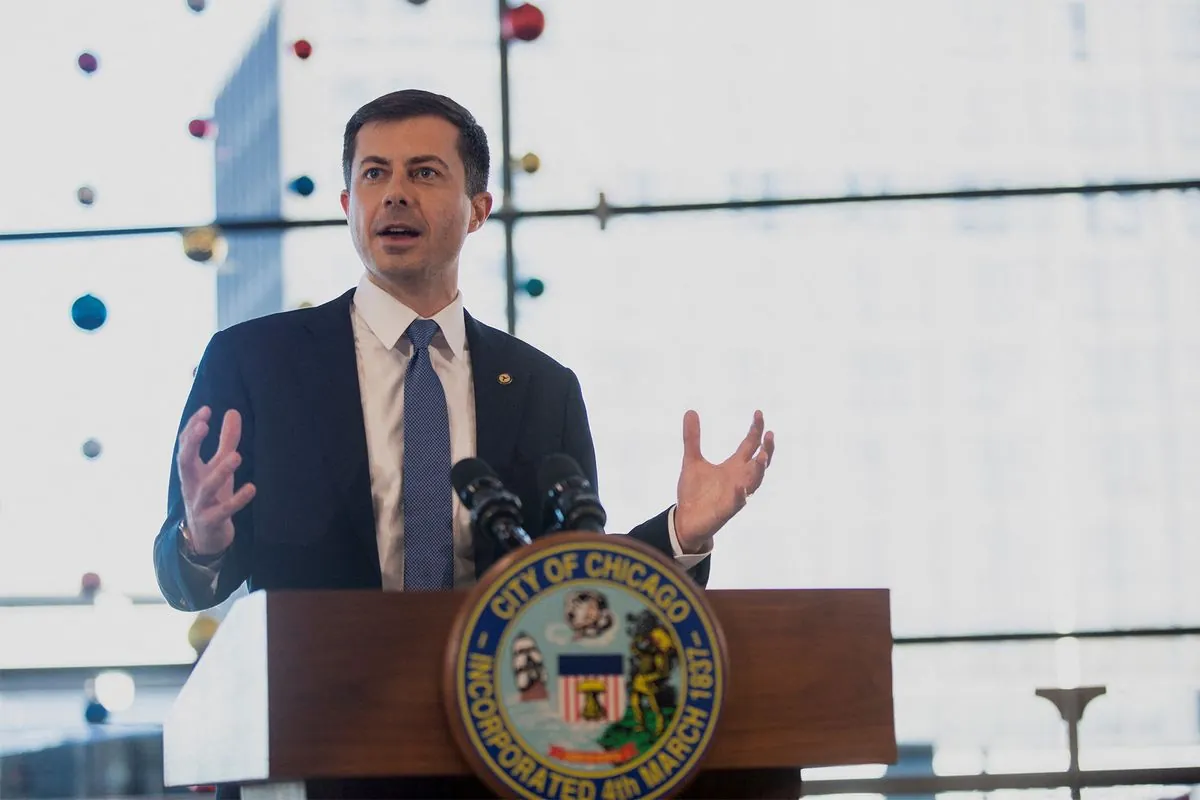Pete Buttigieg, the U.S. Transportation Secretary, has issued a stern warning to the nation's top ten airlines regarding compliance with new passenger refund regulations. The rules, enacted by Congress in May 2024, have been met with resistance from the airline industry, which sought additional time for implementation.
Buttigieg firmly rejected the industry's request, stating, "The law did not provide for extensions or delays." He emphasized the Department of Transportation's commitment to enforcing these provisions through investigative and enforcement powers.
The new regulations, aimed at enhancing passenger rights, include:
- Automatic cash refunds for canceled or significantly changed flights
- Five-year validity for flight credits and vouchers
- Clear communication of refund rights to passengers
Airlines for America, representing major carriers like Delta Air Lines, United Airlines, American Airlines, and Southwest Airlines, had argued that implementing the required technology solutions would necessitate extensive development and testing. However, Buttigieg dismissed these concerns, insisting on immediate compliance.
The urgency of these regulations was underscored by recent events. On July 19, 2024, a software update by cybersecurity firm CrowdStrike triggered system-wide issues for several airlines. Delta Air Lines experienced particularly severe disruptions, resulting in over 6,000 flight cancellations and affecting more than 500,000 passengers over six days.
"Cash refunds - not vouchers or credits - must be automatic for passengers when they are owed."
This incident prompted the Department of Transportation to launch an investigation, highlighting the critical need for robust passenger protection measures.
The new refund rules represent a significant shift in the airline industry, which has a long history of evolving regulations. Since the establishment of the Department of Transportation in 1966 and the Airline Deregulation Act of 1978, the focus has increasingly shifted towards consumer protection.
As the industry grapples with these changes, it's worth noting that airlines have faced similar challenges before. The introduction of jet airliners in the 1950s and the creation of the Federal Aviation Administration in 1958 also required significant adaptations.
Buttigieg's stance reflects a growing emphasis on passenger rights in an industry that employs over 700,000 people in the United States. As airlines work to comply with these new regulations, passengers can expect more transparent and consumer-friendly policies in the coming months.
